Magic Mushrooms
$180.00 – $3,000.00
1.magic mushrooms and their history
Magic mushrooms, also known as psilocybin mushrooms, have a rich and fascinating history that spans across cultures and civilizations. These extraordinary fungi have been used for centuries in various rituals and ceremonies, valued for their mystical and transformative properties.
The origins of magic mushrooms can be traced back to ancient cultures such as the Aztecs and Mayans, who considered them to be sacred and imbued with spiritual significance. These civilizations believed that consuming magic mushrooms allowed them to connect with the divine, gain insights, and communicate with higher realms of consciousness. The mushrooms were often used by shamans and spiritual leaders during religious ceremonies, offering a gateway to altered states of consciousness and profound experiences.
In more recent history, the Western world became captivated by the allure of magic mushrooms during the psychedelic revolution of the 1960s. Influential figures like Timothy Leary and Terence McKenna popularized the use of psilocybin mushrooms as a tool for personal growth, self-exploration, and expanding the boundaries of human consciousness.
Today, the potential benefits of magic mushrooms are being explored in the field of psychedelic research and therapy. Preliminary studies suggest that psilocybin, the active compound found in magic mushrooms, may have therapeutic effects for various mental health conditions, including depression, anxiety, and addiction. The ability of these mushrooms to induce introspection, creativity, and profound spiritual experiences has intrigued scientists and medical professionals alike.
However, it’s important to note that the use of magic mushrooms is still illegal in many countries and carries legal and health risks. This article aims to provide an objective exploration of the potential benefits and risks associated with magic mushrooms, shedding light on the scientific research and cultural significance surrounding these enigmatic fungi.
So, join us on this journey as we delve into the secrets of magic mushrooms, uncovering their rich history, potential benefits, and the ongoing discussions around their legal and medical implications. Whether you’re a curious explorer, a seasoned psychonaut, or simply intrigued by the mysteries of the mind, this article will serve as a comprehensive guide to unlocking the secrets of magic mushrooms.
2. The active ingredient in magic mushrooms: Psilocybin
Psilocybin, the active ingredient found in magic mushrooms, has garnered significant attention in recent years for its potential therapeutic benefits. This naturally occurring psychedelic compound has been used for centuries in traditional and spiritual practices, and now, scientific research is shedding light on its potential to treat various mental health conditions.
When ingested, psilocybin is converted into psilocin, which acts on serotonin receptors in the brain. This interaction leads to a profound alteration of perception, cognition, and mood. Many individuals report experiencing a heightened state of consciousness, increased introspection, and a sense of interconnectedness with the world around them.
One of the most promising applications of psilocybin is in the treatment of depression and anxiety. Clinical trials have shown promising results, with participants reporting significant reductions in depressive symptoms and enhanced emotional well-being. Psilocybin therapy may provide a unique approach for individuals who have not responded well to traditional antidepressant medications.
Additionally, psilocybin has shown potential in addressing addiction. Studies have found that it can help individuals break free from the cycle of substance abuse, particularly in cases of tobacco and alcohol addiction. The psychedelic experience induced by psilocybin has been reported to promote introspection and self-reflection, allowing individuals to confront the underlying causes of their addiction and make positive changes.
Beyond mental health, psilocybin has also been found to have a profound impact on spirituality and personal growth. Many individuals describe having profound mystical experiences during psilocybin sessions, characterized by a sense of unity, transcendence, and awe. These experiences can have long-lasting positive effects, leading to increased life satisfaction, openness, and a greater sense of purpose.
It is important to note that the therapeutic use of psilocybin should always be conducted under the guidance of trained professionals in a controlled setting. The potential benefits of psilocybin must be explored with caution, considering factors such as dosage, set, and setting.
As research on psilocybin continues to evolve, it holds tremendous potential to revolutionize mental health treatment and provide new insights into the nature of consciousness. However, further studies are needed to fully understand its mechanisms of action and establish safe and effective protocols for its therapeutic use.
3. The potential therapeutic benefits of psilocybin
Psilocybin, the active compound found in magic mushrooms, has been the subject of extensive research in recent years due to its potential therapeutic benefits. While historically associated with psychedelic experiences and recreational use, scientists and medical professionals are now recognizing the profound impact psilocybin can have on mental health and well-being.
Studies have shown promising results in the treatment of various mental health conditions, including depression, anxiety, and post-traumatic stress disorder (PTSD). Psilocybin has been found to promote neuroplasticity and facilitate new neural connections in the brain, leading to enhanced emotional processing and a greater sense of self-awareness.
One of the key therapeutic effects of psilocybin is its ability to induce a state of neurogenesis, or the growth of new brain cells. This process is believed to play a crucial role in repairing damaged neural pathways and alleviating symptoms of mental health disorders. Psilocybin-assisted therapy has shown remarkable success in providing long-lasting relief for individuals who have not responded well to traditional treatments.
Moreover, psilocybin has also shown great potential in addressing addiction. Research suggests that it can help individuals break free from substance dependence by promoting introspection, emotional breakthroughs, and a shift in perspective. This can be particularly beneficial for those struggling with nicotine, alcohol, or opioid addiction.
It is important to note that the therapeutic use of psilocybin is still in its early stages, and further research is needed to fully understand its mechanisms and potential applications. However, the preliminary findings are undoubtedly promising, igniting hope for a new frontier in mental health treatment.
As the stigma around psychedelic substances continues to diminish and the scientific community dives deeper into the therapeutic benefits of psilocybin, it is clear that this natural compound holds immense potential for healing and personal growth. With careful guidance and medical supervision, the responsible and intentional use of psilocybin could revolutionize mental health care and offer a new ray of hope for individuals seeking relief from the burdens of mental illness.
4. Exploring the effects of psilocybin on mental health
Psilocybin, the active compound found in magic mushrooms, has been gaining attention for its potential benefits in the field of mental health. Researchers and mental health professionals have been exploring the effects of psilocybin on various mental health conditions, such as depression, anxiety, and post-traumatic stress disorder (PTSD).
Studies conducted in recent years have shown promising results, suggesting that psilocybin may have the ability to alleviate symptoms of these mental health conditions. One study, conducted at Johns Hopkins University, found that a single dose of psilocybin had a significant and lasting positive impact on individuals with life-threatening cancer, reducing depression and anxiety levels and improving their overall quality of life.
Another study conducted at Imperial College London demonstrated that psilocybin-assisted therapy was effective in reducing treatment-resistant depression. Participants reported a reduction in depressive symptoms and an increased sense of well-being after undergoing psilocybin therapy.
The effects of psilocybin on mental health are believed to stem from its ability to alter brain activity and promote neuroplasticity. Psilocybin interacts with serotonin receptors in the brain, specifically targeting the 5-HT2A receptors, which are involved in mood regulation. This interaction may lead to a shift in perception, increased introspection, and enhanced emotional processing.
It is important to note that further research is still needed to fully understand the potential benefits and risks associated with psilocybin use. However, the initial findings are encouraging and have led to a growing interest in utilizing psilocybin-assisted therapy as a potential treatment option for mental health conditions.
As the stigma surrounding psychedelics continues to diminish, more research opportunities are emerging, and regulatory frameworks are evolving to allow for controlled exploration of these substances. The potential benefits of psilocybin in mental health treatment offer a glimmer of hope for those who have not found relief through conventional therapies. However, it is crucial that any exploration of psilocybin be done in a controlled and supervised setting, under the guidance of trained professionals.
In conclusion, the effects of psilocybin on mental health are an intriguing area of research that holds promise for individuals struggling with various mental health conditions. As scientists delve deeper into understanding the mechanisms behind these effects, we may uncover new treatment options that can help unlock the potential of magic mushrooms in the realm of mental health.
5. Psilocybin and its potential in treating depression and anxiety
Psilocybin, the active compound found in magic mushrooms, has been gaining attention for its potential therapeutic benefits in treating depression and anxiety. Traditionally, these psychedelic mushrooms have been used in spiritual and cultural rituals for centuries, but recent scientific research has shed light on their potential medicinal properties.
Studies have shown that psilocybin can have profound effects on the brain, particularly in the areas related to mood regulation and emotional processing. It is believed that the compound acts on the serotonin receptors in the brain, promoting neuroplasticity and enhancing neural connectivity. This unique mechanism of action has led researchers to explore its potential as a treatment for mental health disorders.
Depression and anxiety are two of the most common mental health conditions globally, affecting millions of people. Conventional treatments often involve pharmacotherapy or psychotherapy, but these approaches may not be effective for everyone. This has prompted the search for alternative treatments, and psilocybin has emerged as a promising candidate.
In clinical trials, psilocybin-assisted therapy has shown remarkable results in reducing symptoms of depression and anxiety in patients who have not responded well to traditional treatments. Participants have reported an increased sense of well-being, improved mood, and a greater sense of connectedness. The profound and transformative experiences induced by psilocybin have been credited with helping individuals gain new perspectives and insights into their lives, leading to long-lasting positive changes.
It is important to note that the therapeutic use of psilocybin is still in its early stages, and more research is needed to fully understand its potential benefits and risks. However, the preliminary findings are promising, and ongoing studies are exploring the optimal dosage, treatment protocols, and long-term effects.
As the stigma surrounding psychedelics continues to diminish, there is growing interest from the medical community and the general public in harnessing the therapeutic potential of magic mushrooms. With proper regulation and guidance, psilocybin-based treatments may offer a new ray of hope for individuals struggling with depression and anxiety, paving the way for a new era in mental health care.
6. The role of psilocybin in addiction treatment
Psilocybin, the active compound found in magic mushrooms, has been gaining attention for its potential role in addiction treatment. Research studies have shown promising results, highlighting its ability to help individuals break free from the cycle of addiction.
One of the key ways psilocybin works is by affecting the brain’s serotonin receptors. Serotonin is a neurotransmitter that plays a crucial role in mood regulation, and imbalances in serotonin levels have been linked to various mental health disorders, including addiction. Psilocybin interacts with these receptors, leading to a cascade of effects that can result in profound changes in perception and cognition.
In addiction treatment, psilocybin-assisted therapy has shown significant potential. It allows individuals to have deeply introspective and transformative experiences, which can help them gain new insights, confront underlying emotional issues, and break free from destructive patterns of behavior. The psychedelic experience induced by psilocybin can provide a fresh perspective, enabling individuals to confront the root causes of their addiction and develop strategies for long-term recovery.
Research conducted at renowned institutions such as Johns Hopkins University and Imperial College London has demonstrated the effectiveness of psilocybin-assisted therapy in treating addiction to substances like nicotine, alcohol, and opioids. Studies have shown that a single guided session with psilocybin can lead to substantial improvements in treatment outcomes, including reduced cravings, increased motivation to change, and enhanced overall well-being.
It is important to note that psilocybin-assisted therapy is not a standalone solution for addiction and should be used in conjunction with other evidence-based treatments and therapies. Additionally, this approach should only be administered under the guidance of trained professionals in a controlled and supportive environment to ensure safety and maximize therapeutic potential.
As the understanding of psilocybin and its potential benefits continues to evolve, researchers and healthcare providers are hopeful that this remarkable compound could revolutionize addiction treatment by offering a novel and effective approach to help individuals overcome the challenges of substance dependence.
7. Psychedelic experiences and their impact on personal growth and spirituality
Psychedelic experiences, such as those induced by magic mushrooms, have long been associated with profound personal growth and spiritual awakening. These experiences can offer a unique and transformative journey into the depths of one’s consciousness.
When consumed in a safe and controlled environment, magic mushrooms have the potential to unlock a door to a realm of heightened perception and expanded awareness. Users often report a deep sense of connectedness with the world around them, a dissolution of ego boundaries, and a profound sense of unity with the universe. This dissolution of the self can lead to a greater understanding of one’s place in the grand tapestry of existence.
Many individuals who have undergone psychedelic journeys with magic mushrooms report a renewed sense of purpose and clarity in their lives. These experiences have been known to catalyze personal growth, leading to positive changes in behavior, attitudes, and beliefs. Users often describe a newfound appreciation for the present moment and a reevaluation of their priorities and values.
Furthermore, the spiritual implications of magic mushroom experiences cannot be overlooked. Many cultures and ancient traditions have utilized psychedelic substances for centuries as a means to connect with the divine and gain deeper insights into the nature of reality. These substances have been revered as sacred tools for expanding consciousness and facilitating spiritual exploration.
It should be noted, however, that psychedelic experiences can be intense and should be approached with caution and respect. They are not suitable for everyone and should only be undertaken in a supportive and controlled setting. Additionally, it is crucial to research the legal and safety implications of magic mushroom use in your specific location.
In conclusion, the potential benefits of magic mushrooms in facilitating personal growth and spiritual exploration are vast and intriguing. These psychedelic experiences have the power to unlock hidden realms of consciousness and offer profound insights into the nature of reality and the self. However, responsible and informed usage is essential to ensure a safe and transformative journey.
8. The importance of set and setting in using magic mushrooms
When it comes to exploring the potential benefits of magic mushrooms, one crucial aspect that cannot be overlooked is the importance of set and setting. Set refers to the mindset and mental state of the individual consuming the mushrooms, while setting refers to the physical environment in which the experience takes place.
The mindset of the user plays a significant role in shaping the overall experience. It is essential to approach the consumption of magic mushrooms with a positive and open mindset. This means being mentally prepared for the journey, setting intentions, and being aware of one’s emotional and mental state. Creating a safe and comfortable headspace will contribute to a more meaningful and transformative experience.
Equally important is the setting in which the magic mushroom experience takes place. The physical environment can greatly influence the individual’s state of mind and the overall outcome of the experience. It is recommended to choose a calm and familiar setting where the user feels safe and secure. This could be a peaceful natural setting or a cozy and comfortable indoor space. The ambiance of the surroundings, lighting, and even the presence of supportive individuals can all contribute to a positive and enriching experience.
By paying attention to both set and setting, individuals can enhance their magic mushroom experiences and unlock the full potential of these mystical substances. It is crucial to create an environment that fosters introspection, mindfulness, and personal growth, allowing for a deeper connection with oneself and the world around them. Remember, the journey with magic mushrooms can be transformative and enlightening, but it should always be approached with respect, caution, and careful consideration of set and setting.
9. The current legal status of magic mushrooms
The legal status of magic mushrooms varies across different countries and regions, making it crucial for individuals to understand the legal implications before engaging with these substances. In many parts of the world, including the United States and Canada, magic mushrooms are classified as Schedule I drugs, meaning they are considered to have a high potential for abuse and no recognized medical use.
However, there are exceptions to this general classification. For instance, in recent years, several cities and states within the United States have decriminalized or even legalized the use of magic mushrooms for therapeutic purposes. These developments have been driven by growing research and public awareness about the potential benefits of psilocybin, the psychoactive compound found in magic mushrooms.
In countries such as Brazil, Jamaica, and the Netherlands, the legal status of magic mushrooms is more lenient, with certain regulations in place. In Brazil, for example, the cultivation, sale, and use of magic mushrooms are legal for religious and cultural purposes, while in the Netherlands, the sale and possession of magic mushrooms are prohibited, but the cultivation and personal use are not explicitly illegal.
It is essential to note that the legal landscape surrounding magic mushrooms is continuously evolving as more research is conducted and public attitudes shift. Therefore, it is important for individuals interested in exploring the potential benefits of magic mushrooms to stay updated on the legal status in their specific jurisdiction and to approach their use responsibly and within the confines of the law.
10. Conclusion: The future of psilocybin research and its potential benefits
In conclusion, the future of psilocybin research holds immense promise in uncovering the potential benefits of magic mushrooms. While historically stigmatized and classified as a Schedule I controlled substance, there has been a notable shift in public opinion and scientific interest surrounding the therapeutic properties of psilocybin.
Numerous studies have shown promising results in treating mental health conditions such as depression, anxiety, and PTSD, with some patients experiencing long-lasting positive effects even after just a single dose. The ability of psilocybin to induce profound mystical experiences and promote introspection has opened up new avenues for exploring consciousness and spirituality in therapeutic settings.
However, it is crucial to highlight that further research is still needed to fully understand the mechanisms behind these therapeutic effects and to establish standardized protocols for safe and effective use. The potential risks and adverse reactions associated with psilocybin should not be overlooked, and responsible use and proper medical supervision should always be prioritized.
As the stigma surrounding psychedelic substances continues to dissipate, more funding and support for research into psilocybin’s benefits are emerging. The future holds great potential for unlocking the secrets of magic mushrooms, paving the way for innovative treatments and improving the lives of individuals struggling with mental health disorders.
It is important to approach this topic with an open mind and a commitment to scientific rigor. With continued exploration, psilocybin may offer a revolutionary breakthrough in mental health care, offering hope and healing to those in need. The possibilities are vast, and the journey towards understanding the full potential of magic mushrooms has only just begun.
Buy Magic Mushrooms Online/definition
Psilocybin or magic mushrooms are naturally occurring and are consumed for their hallucinogenic effects.
They are psychedelic drugs, which means they can affect all the senses, altering a person’s thinking, sense of time and emotions. Psychedelics can cause a person to hallucinate, seeing or hearing things that do not exist or are distorted.1
The key ingredient in magic mushrooms is psilocybin. When psilocybin is taken, it’s converted in the body to psilocin, which is the chemical with the psychoactive properties.
Magic mushrooms look much like ordinary mushrooms.
There are many different types of magic mushrooms. The most common ones in Australia are called golden tops, blue meanies and liberty caps.3 Magic mushrooms look similar to poisonous mushrooms that can cause a person to become very sick and can result in death.
They can also come as dried material in capsules. Synthetic psilocybin appears as a white crystalline powder that can be processed into tablets or capsules or dissolved in water.
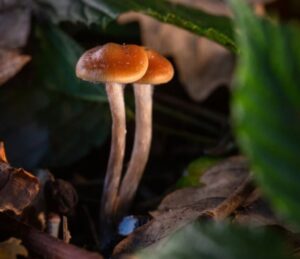
contact us here to Buy Magic Mushrooms Online
click here to view our products
| quantity | 10grams, 20grams, 50grams, 100grams, 200grams, 1kilo |
|---|
Be the first to review “Magic Mushrooms” Cancel reply
Related products
Mushrooms
Mushrooms
Mushrooms
Mushrooms
Mushrooms
Mushrooms
Mushrooms
Mushrooms

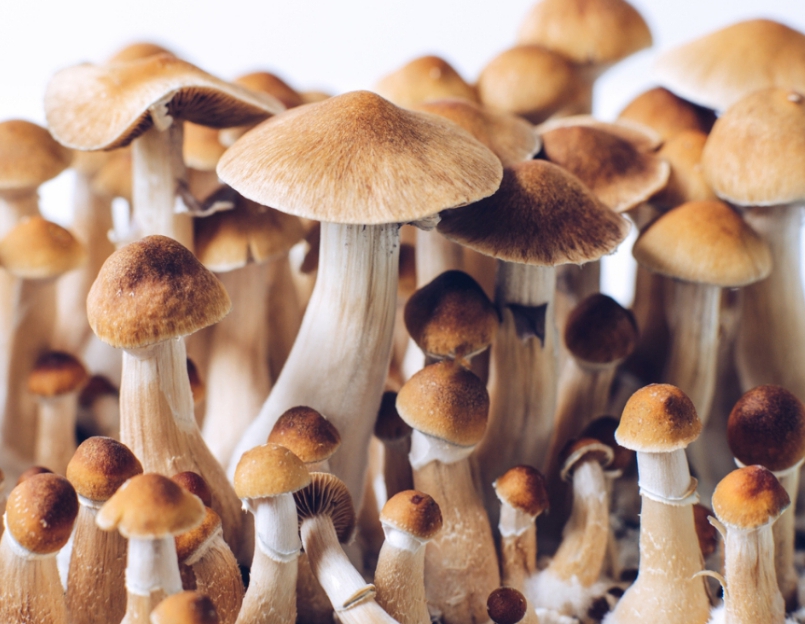
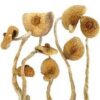

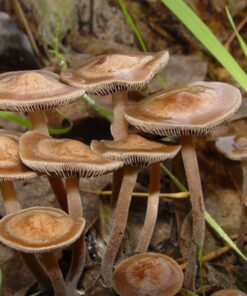
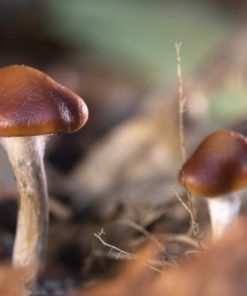
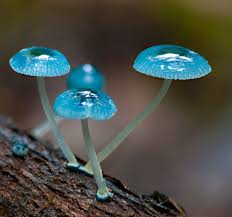
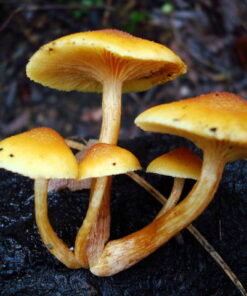
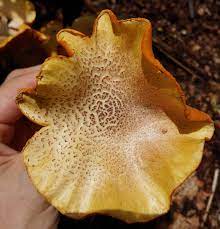
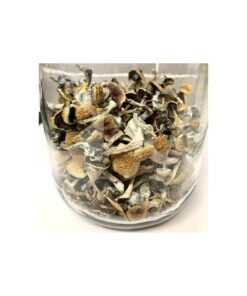
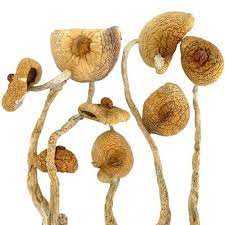
Reviews
There are no reviews yet.